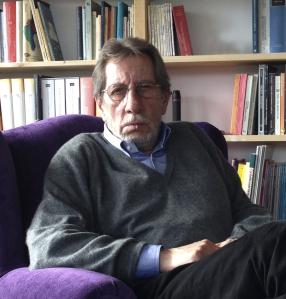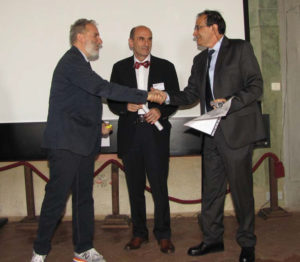The “Marina Diana Mercurio – SIBPA” Award was conceived in 2015 from the debate that arose in the panel discussion held at the 2014 SIBPA Congress in Palermo.
The award, to be given every two years at the Congress, is intended to give recognition to scholars whose work has had a distinct interdisciplinary characteristic combined with a commitment to showing the connection between scientific activities and other aspects of human endeavor.
2022 Edition
In 2022, during San Miniato Congress, ‘Marina Diana Mercurio’ prize is awarded to Clara Frontali for the impetus she gave to the Istituto Superiore di Sanità with her rigorous studies in the field of biophysics and molecular biology and her ability to combine cutting-edge research activities both with her commitment to representing our Country in various international scientific institutions and with an extraordinary communicative dialogue with the younger generations.

2020 Edition
In 2020, during Parma Congress, “Marina Diana Mercurio” Award is assigned to Nicoletta Berardi for her studies on visual sciences and perceptual learning, and their relationships with cortical and neural plasticity, guided by a research approach – strongly interdisciplinary and focused on human-centered problems – which led her to obtain frontier scientific results of a strong innovative content and of great interest from the point of view of the social impact.

2018 edition
The second edition of the prize (Ancona, 2018), was awarded to Francesco Lenci (CNR, Pisa and USPID), for “his extraordinary ability to mix, along several decades, frontier scientific results in biophysics and sensory photobiology, with a strong and creative commitment to the guidance of various scientific institutions and international organizations for disarmament and the sciences of peace.”

2016 edition
The first edition of the prize was jointly awarded to Enrico Di Cera (Saint Louis University) and Leone Montagnini (Biblioteche di Roma) and assigned in 2016, in Cortona.
The prize to Enrico Di Cera recognized “an interdisciplinary epistemological attitude, starting from his formative years, that has characterized his biophysical approach to important biological questions and their conceptual underpinnings.”
The prize to Leone Montagnini recognized “his innovative work on Norbert Wiener outlining the importance of his contribution to 19th century science and defining the roots of this contribution in the context of the search for new concepts and the constant respect of human beings”.


